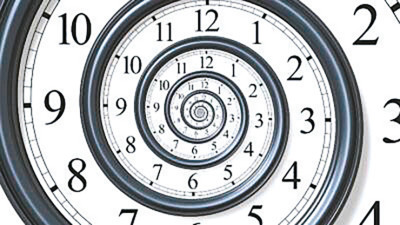
Published in recognition of rebbe’s first yartzheit.
Goals are a supremely important and motivating force in our lives. When we are able to set our focus on something and commit to it, we find within ourselves wellsprings of will and energy that we may have otherwise never discovered. However, there is likewise an aspect of having a goal that can lead to just the opposite. Allow me to explain.
I was one approached by a fourteen-year-old girl who said to me, “Rabbi Wallerstein, I am ready to get married.” Thrown off by the question, I asked if she could elaborate on what she meant. “I am ready to leave school and head out to work.” I was troubled by her train of thought. “Why do you want to get married during your teenage years? You have a lot to learn and a lot to absorb, and at the appropriate time, in years from now, you can get married. Why are you so eager to do so now?” “Rabbi,” she said, “that’s my ultimate goal. Once I have that, I am set. If I don’t get married soon, I may get older and never get married.”
After hearing this, I explained to her the following. Marriage is not a goal. If that is the way you view it, you will be sorely unhappy as soon as you walk back from your chuppa. You have accomplished your goal, so now what? Where do you go from there? Marriage is rather a means to other goals, including having children and building a Jewish family and Torah future. It is an ingredient, but by no means a goal.
What though occurs if you adopt the attitude that it is a goal? You may be fourteen years old, and you realize that you cannot get married for a number of years. Those gap years then become a barrier and get in your way of your goal. They are blocking you from achieving your desired finish line. If you could, you would rush through those years as fast as you can to avoid the pain of waiting to get married. After all, the sooner you reach your goal, the more successful and happier you will be? But that is far from right.
Hashem created our life in such a way where we experience small increments of time, which aggregate to form larger increments. Seconds turn into minutes, which turn into hours, which turn into days, then weeks, then months, then years.
There are micro and macro segments of time in our life. Every moment of our lives is counted and calculated into the larger framework of our time on this earth. If we fail to appreciate this, we will be exchanging unbelievable opportunities for fulfillment of a “goal.” When that goal will happen, it will happen, but don’t sit around until it does and fritter away the time in between. Of course, if you are taking necessary steps towards that goal, then you are engaging in a meaningful process and living in the present with your sights on the future. Yet, if your focus is anything less than that, you will likely squander and surrender your present time to the future attainment of your goal, and miss out on the here-and-now of your life.
The count of Sefirat HaOmer, which culminates with Shavuot, teaches us this profound lesson. Every day counts. We don’t merely end Pesach and wait around until arriving at Shavuot.
We left Egypt and had our eyes set on an extraordinary goal, that of receiving the Torah. It would be simple to forget about the interim days and merely wait until Shavuot arrives, and then observe it. However, we do just the opposite. We count the days in between, and call attention to the time before our goal manifests itself. And that is because Sefirat HaOmer is a step towards Shavuos, and we want to recognize and value every minute, day and week.
At the end of our lives, Hashem will show us all that we accomplished. But how will we view it? It will not be merely the bookends of our lives. We were born here and passed away there. We will review every second, minute, hour, day, week, month, and year. Every increment counts and is accounted for. If we learned for one hour, said T'hillim for ten minutes and gave tzedakah in one second, that will all be to our credit. If, however, we only set our eyes on a goal of ours and overlook the time in between, we are minimizing the power of the moment and the present.
Every second in our life is a microcosm of Sefirat HaOmer. Count your seconds and make them meaningful. Pull yourself into a quiet space and think, “What is my goal at this moment?” We must live our lives for every moment, because that is where our truest goals will find fulfillment.
Adapted from The TorahAnytimes newsletter, Parshat Bamidbar/Shavuot, published on the 5th of Sivan, 5779; June 8, 2019. Compiled and edited by Elan Perchik.
Seconds, Minutes, Hours
Typography
- Smaller Small Medium Big Bigger
- Default Helvetica Segoe Georgia Times
- Reading Mode












